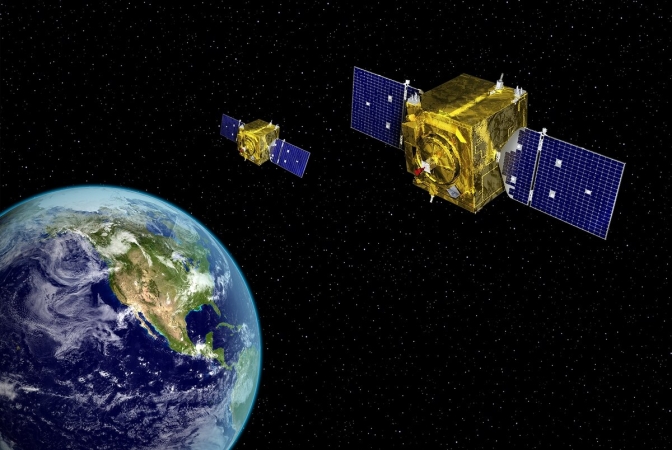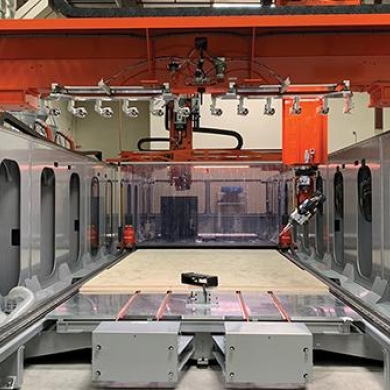By: Andrew Chuter
LONDON – The U.K. and U.S. governments have turned to startups and inventors in a competition to adapt commercial technology solutions to answer pressing challenges in the military space sector.
The two countries have jointly put up £1 million, or $1.3 million, to tap into potential new ideas in six technology areas from small companies, innovators and others around the world.
The finalists will face a beauty parade in front of senior British, American and NATO military officials at a space conference scheduled to take place in London in November.
Up to 15 proposals will be selected to go forward with further work on what is being called International Space Pitch Day.
Launching the scheme, the U.K.'s first-ever, recently appointed director for space matters, Air Vice-Marshal Harv Smyth, said the initiative is “all about fast-tracking innovation and cutting-edge technology to the front line quicker than ever before, and fresh ways of working with industry to make sure we stay ahead of our shared adversaries and the threats they pose.”
Smyth will be one of the judges at the conference, which will be held virtually if the live event is cancelled.
The format will be the first international collaboration of its kind between two allies, the Ministry of Defence said.
Organizations who make it through to the space conference final will be in contention to secure a $66,000 contract from the judges to speed up development of what is expected to be mainly commercial innovations and technology.
The effort, run by Britain's Defence and Security Accelerator organization, is funded by the U.K. Defence Science and Technology Laboratory, the Royal Air Force and the US Air Force.
The aim is to find, fund and fast track innovations by tech startups and other experts in order to accelerate the development of commercial space technology s to solve problems in the defense space sector.
This year's competition is seeking solutions to six challenges set by the U.K. and U.S. space teams:
- Visualization of key events and information for combined space operations with allies and commercial partners.
- Understanding current satellite systems relevant to the operations of a particular commander.
- Understanding the present and potential impact of space weather on users across all domains.
- Provision of training against realistic threats and opportunities, incorporating live data, and integrating space across multiple domains.
- Enabling common and user-defined operational pictures to support multinational space domain awareness and command and control.
- A verification and comparison tool for space domain awareness, which can take orbital observation data from a variety of sources and in a variety of formats and produce a single, reliable operational picture.
https://www.defensenews.com/global/europe/2020/07/22/us-uk-launch-military-space-competition-for-startups


